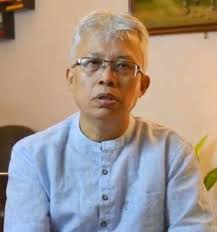Ratan Thiyam, Maestro of Indian Theatre, Bows Out Forever
ART & CULTURE
Imphal: Ratan Thiyam, a towering figure in Indian theatre whose spellbinding visual aesthetic and philosophical depth transformed the stage into sacred ritual, passed away this morning at the age of 77. The legendary Manipuri playwright, director, and cultural thinker breathed his last at RIMS Hospital in Imphal after prolonged post-COVID and related health complications.
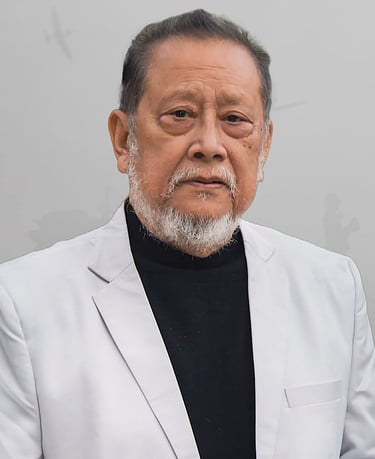

Ratan Thiyam (1948-2025)
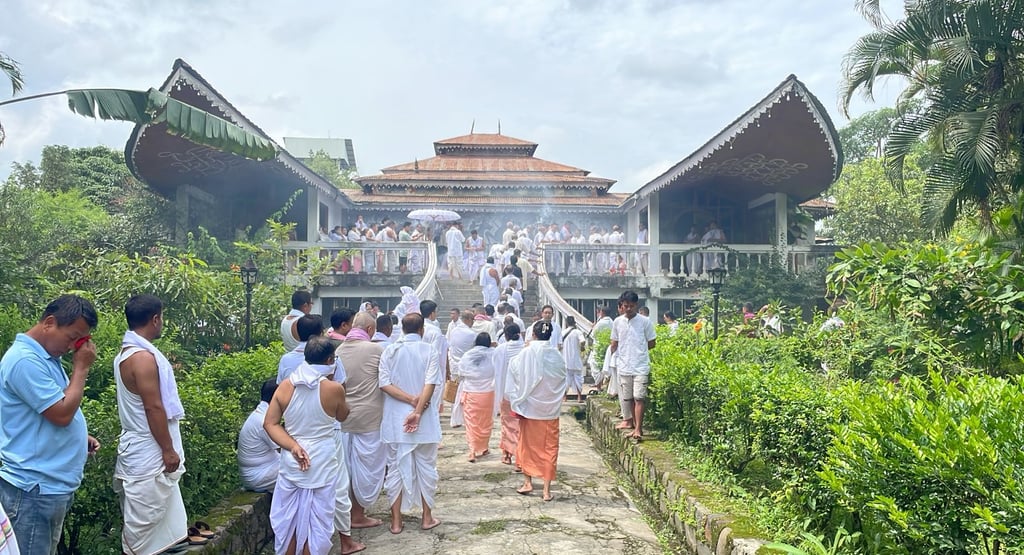

Fans and friends thwart the Chorus Repertory Theatre in Imphal pay their last respects to Late Ratan Thiyam.
As the theatre world mourns a colossal loss, the Manipur State Film Development Society (MSFDS) held a candlelight memorial at 6:00 PM today at the Memorial Stone of Manipuri Cinema within the MSFDS complex. The solemn gathering, open to the public, was organised to offer the film community’s final respects to Ratan Thiyam—not just a titan of theatre, but one of the finest artists Manipur has ever produced.
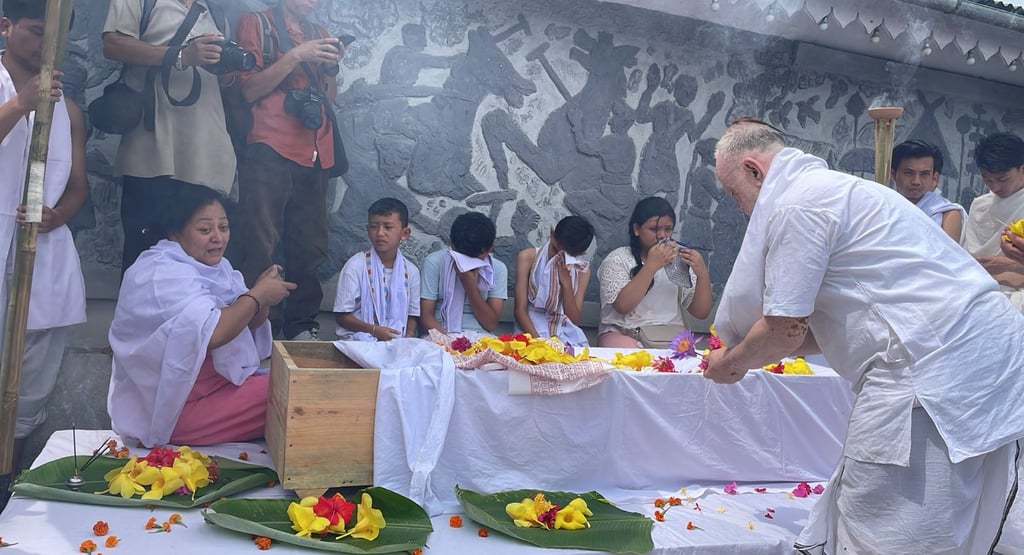

“Though his medium was theatre, his influence transcended disciplines—deeply inspiring Manipuri cinema, visual storytelling, and the state’s broader cultural imagination. The glowing candles, lit in reverence, will stand as flickers of the enduring legacy he leaves behind,” said MSFDS Secretary Sunzu Bachaspatimayum.
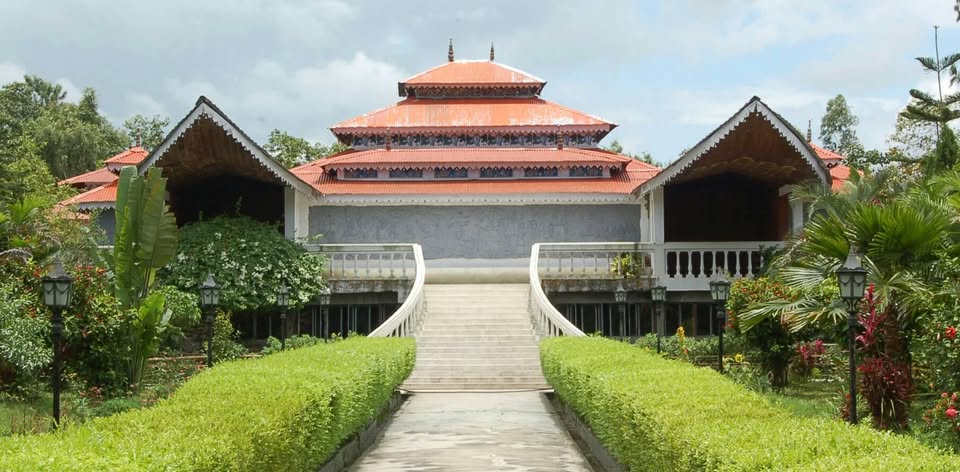

The Shrine of Chorus Repertory Theatre
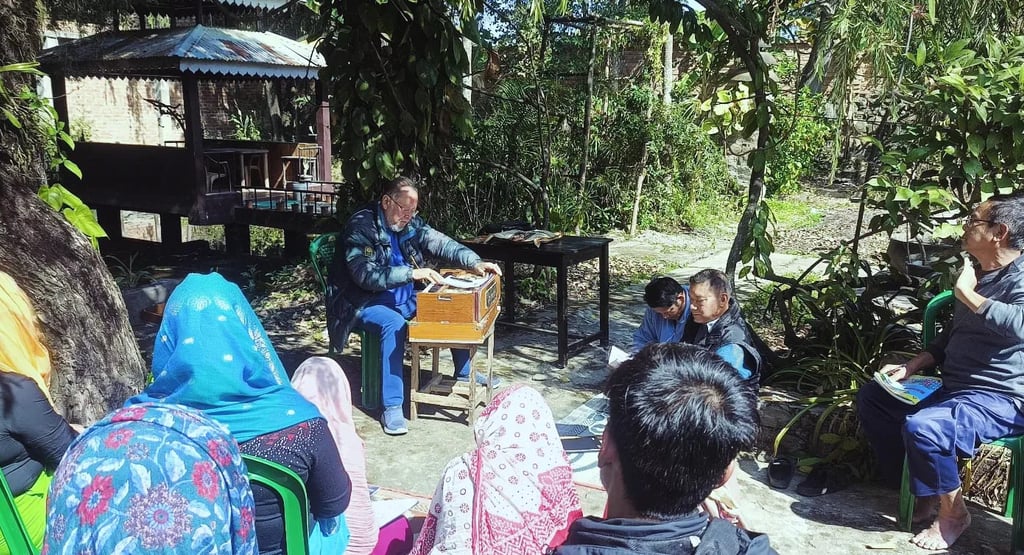

Ratan Thiyam with his artistes preparing for a play
A true son of Manipur and one of the world's finest theatre directors, Thiyam leaves behind a body of work that reshaped the contours of Indian performance. His passing marks the end of an era—but his vision, steeped in ancient Indian wisdom and tuned to the cries of a fractured modernity, will continue to illuminate stages across the world.
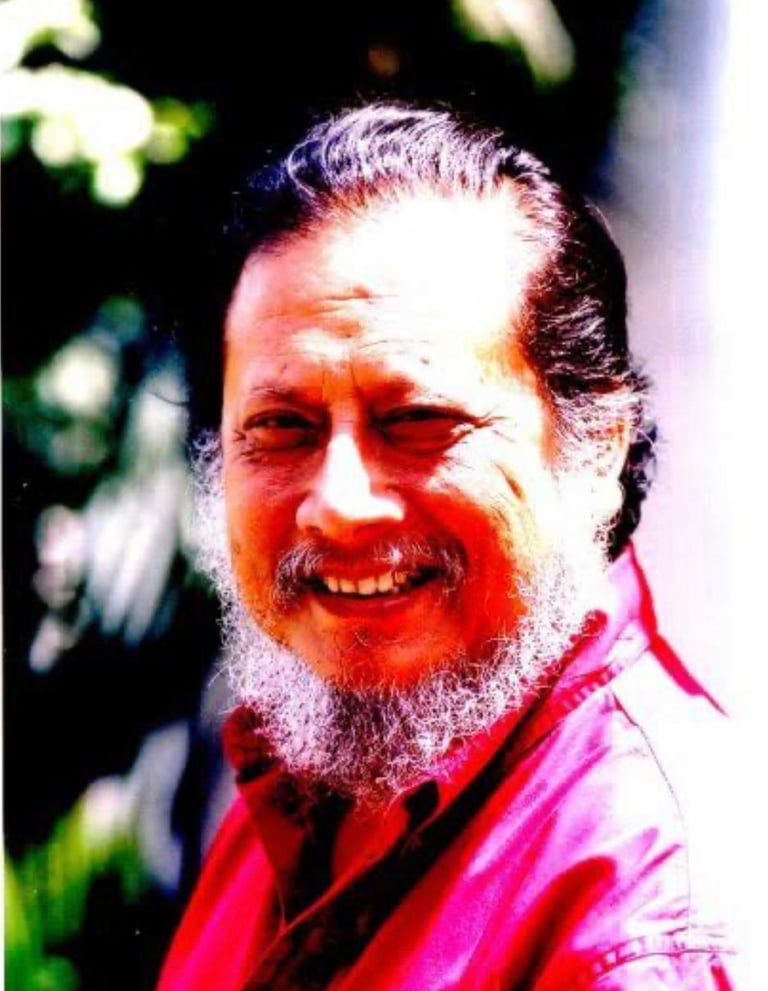

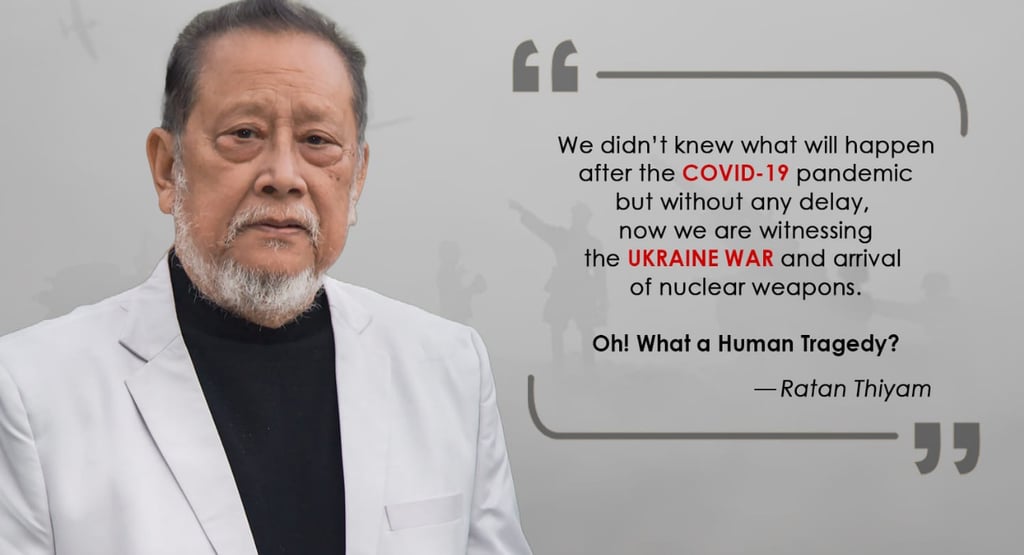

Born on January 20, 1948 in Nabadwip, West Bengal, and raised in Imphal, Ratan Thiyam's life was rooted in Manipur’s cultural soil but reached far beyond its borders. A graduate of the National School of Drama (1974), Thiyam returned to Imphal to establish the Chorus Repertory Theatre in 1976—planting a seed that grew into a global institution. Under his direction, the Chorus stage became an altar where dance, martial arts, poetry, and ritual fused into unforgettable dramatic experiences.
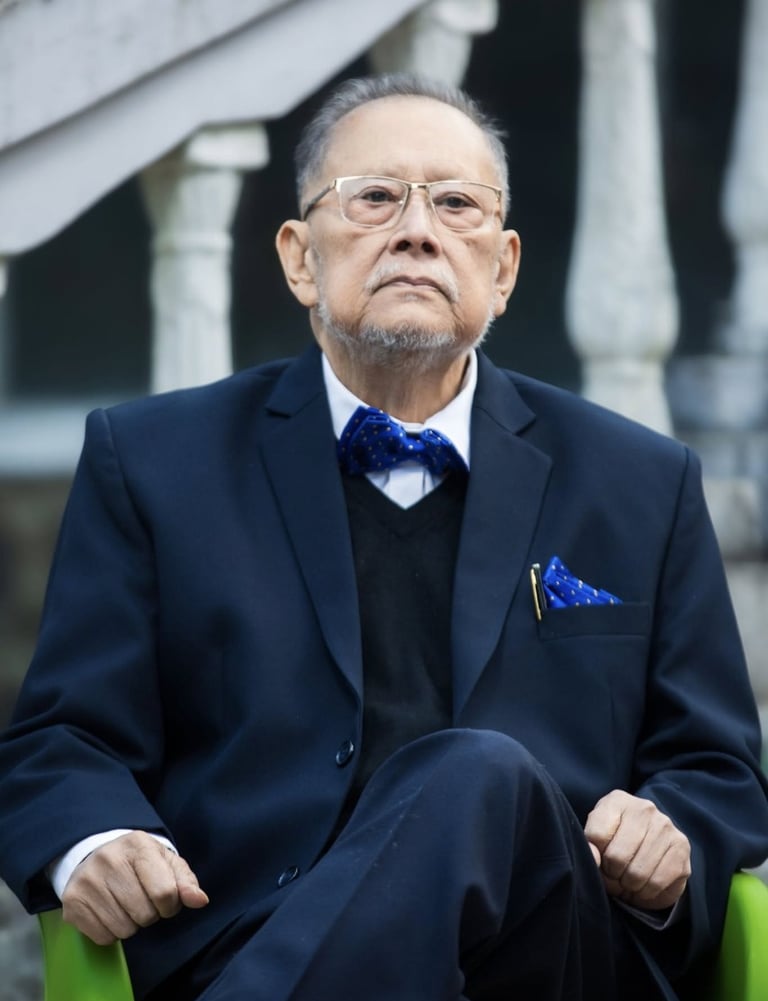

With landmark productions such as Chakravyuha, Uttar Priyadarshi, Urubhangam, Antigone, and When We Dead Awaken, Thiyam forged a new idiom of “theatre of roots”—a movement that reclaimed traditional Indian forms and made them vessels for contemporary critique. His theatre was austere yet spectacular, meditative yet urgent, drawing from Vaishnavism, Meitei culture, and classical texts to address social injustice, war, identity, and spiritual longing.
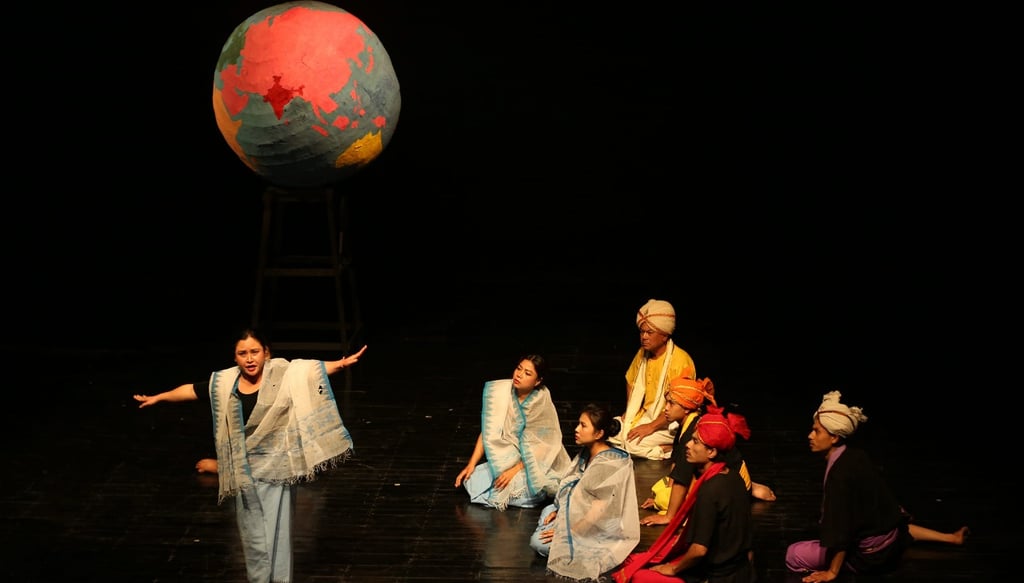

His legacy was not only artistic but deeply political. Thiyam returned his Padma Shri in 2001 to protest threats to Manipur’s territorial integrity, and in recent years, stood against the Government of India’s silence over the ethnic conflict that has scarred the state. For Thiyam, Manipur was not merely home—it was an ideal of co-existence, a cultural ark where many voices must sing in harmony.
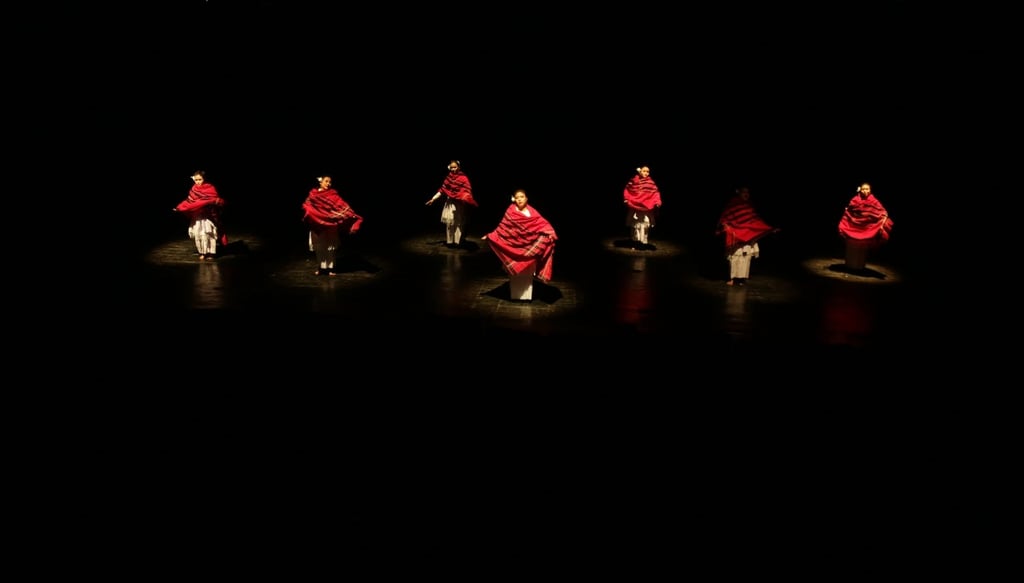

Accolades trailed him throughout his life: the Sangeet Natak Akademi Award, the Fringe Firsts Award at Edinburgh, the Kalidas Samman, the Rockefeller Award, and most recently, a Lifetime Achievement Award conferred by the Government of Manipur in 2024. He also served as Director of the National School of Drama and Vice-Chairman of the Sangeet Natak Akademi, but always returned to the Chorus, the sacred space he built from the ground up.
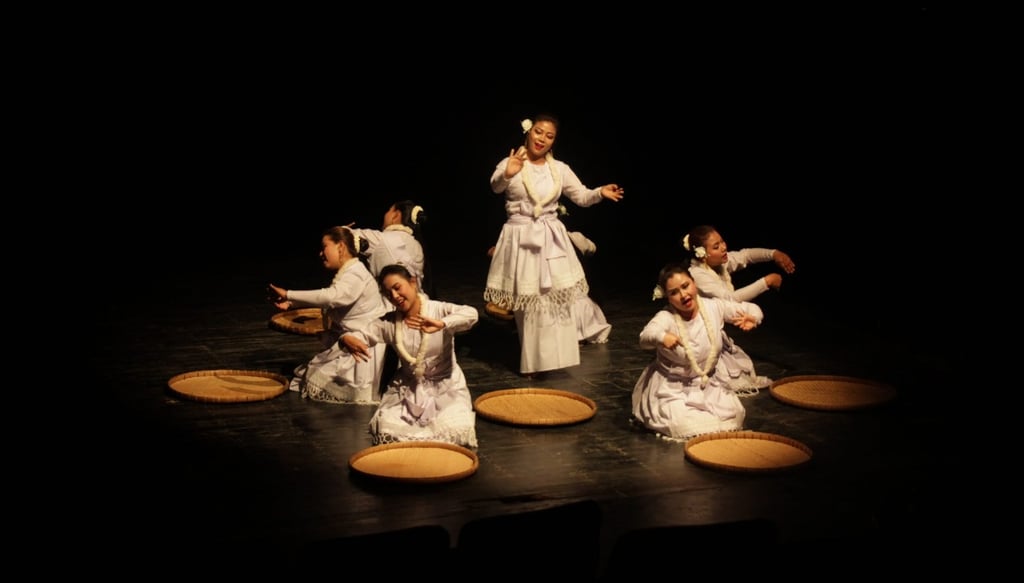

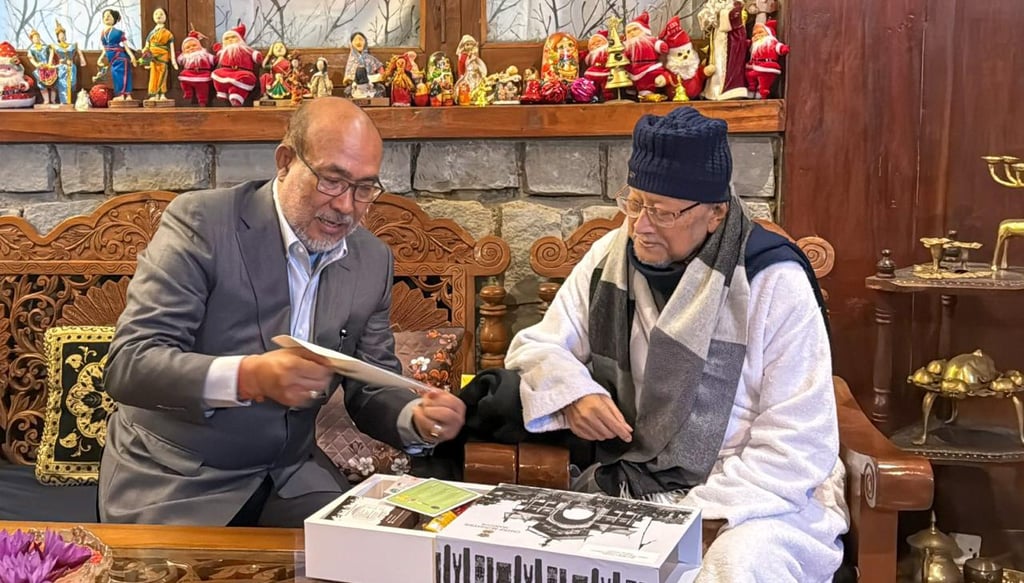

Former Chief Minister N. Biren Singh called him “a revered son of Manipur.” Condolence messages have poured in from around the world, remembering a man whose theatre was both prayer and protest.
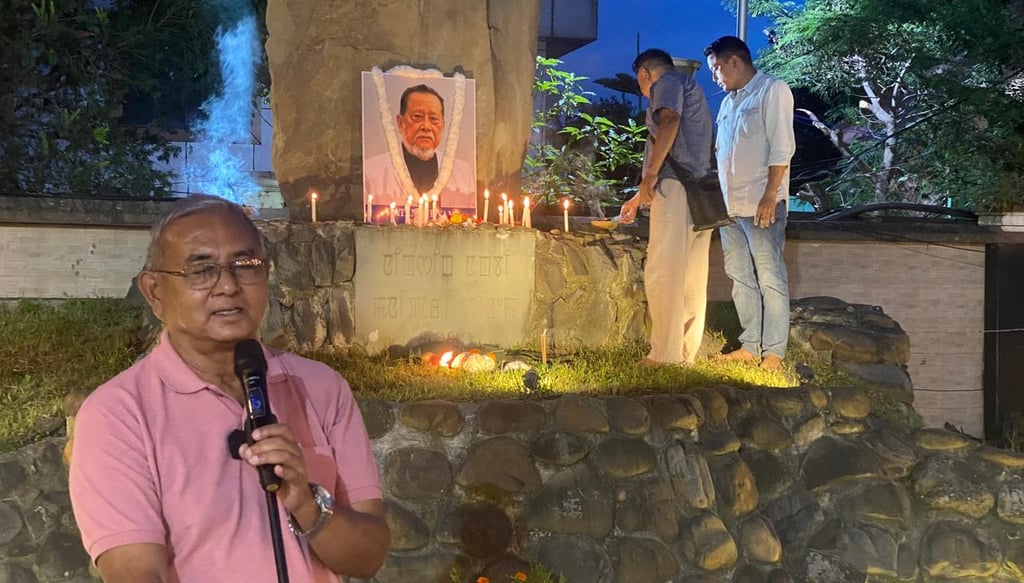

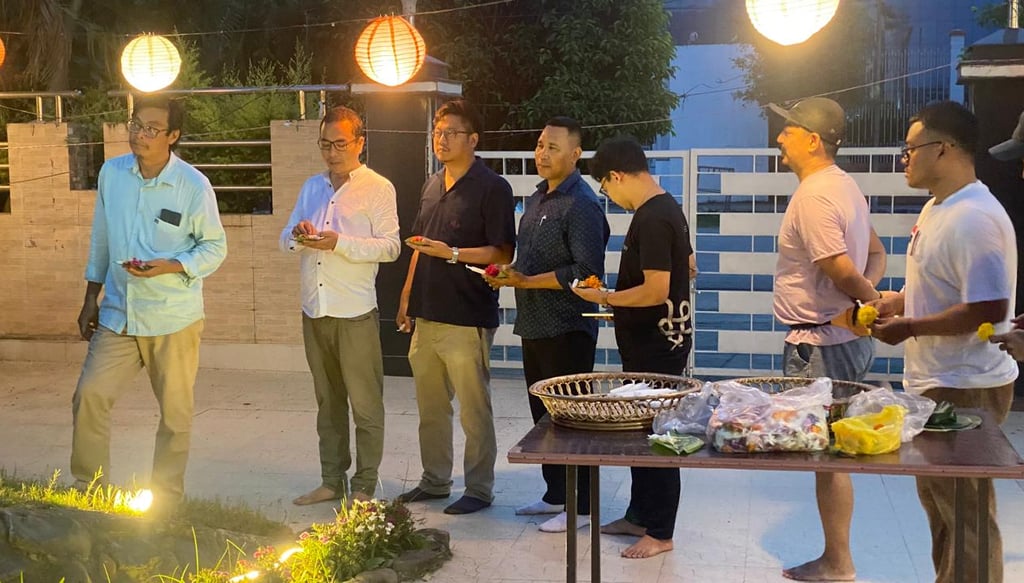

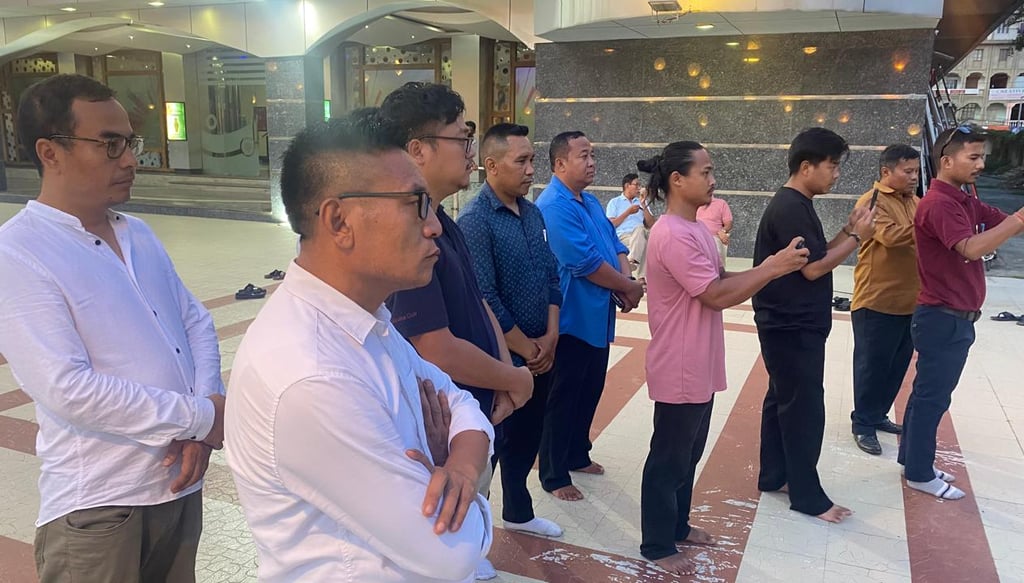

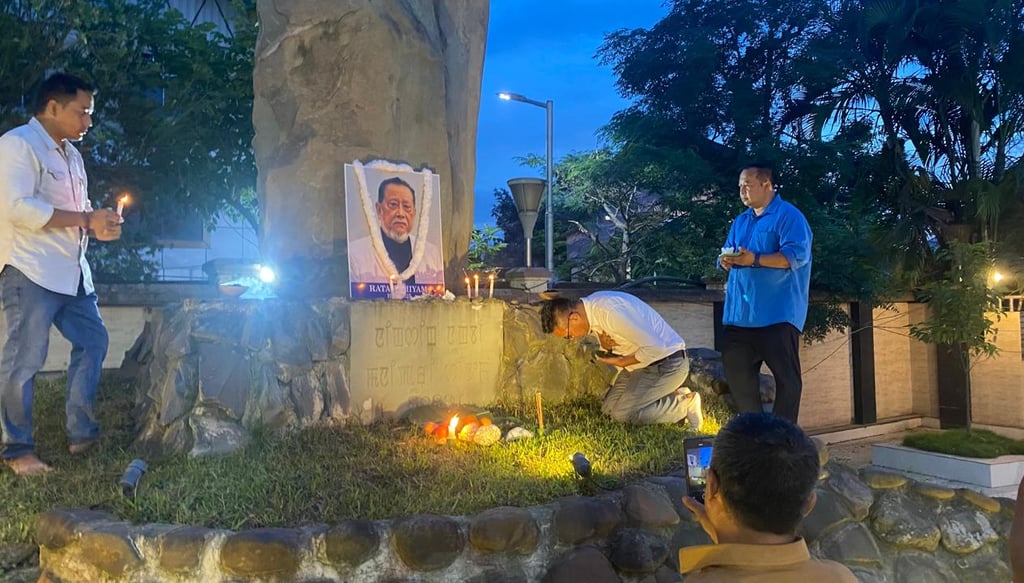

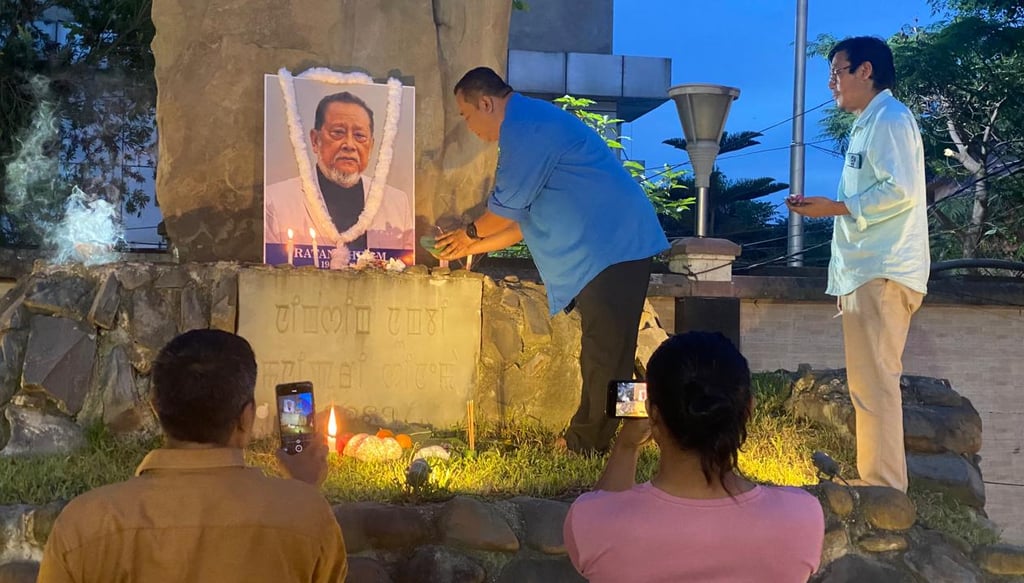

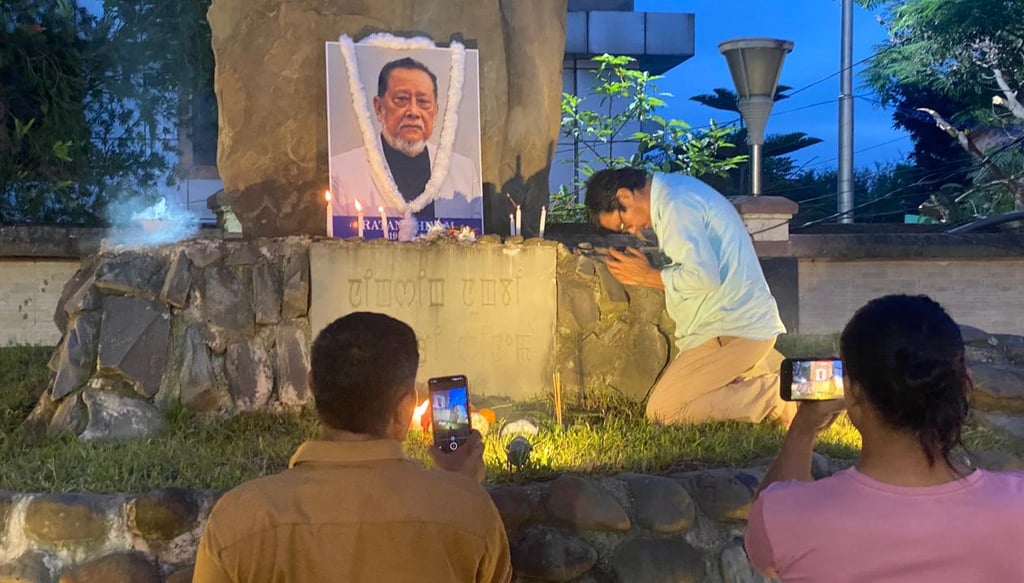


Though the lights have dimmed on the Chorus stage, the voice of Ratan Thiyam—poetic, uncompromising, and eternal—will echo for generations to come.
Hon'ble MP Bimol bows in deep sorrow at the passing of Pabung Ratan Thiyam
https://www.facebook.com/share/v/1EoCrFyUTd/?mibextid=D5vuiz
